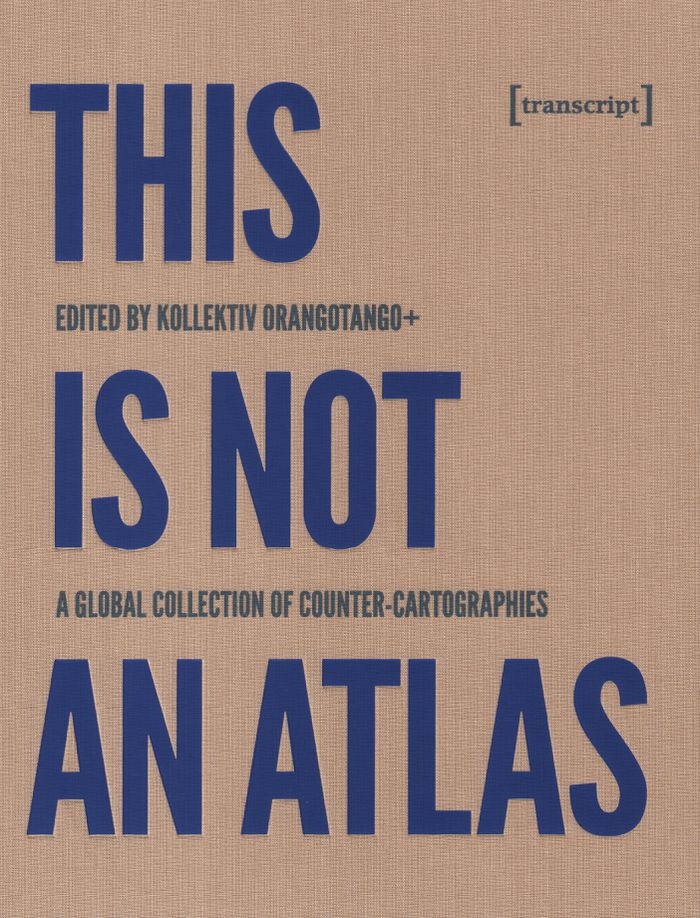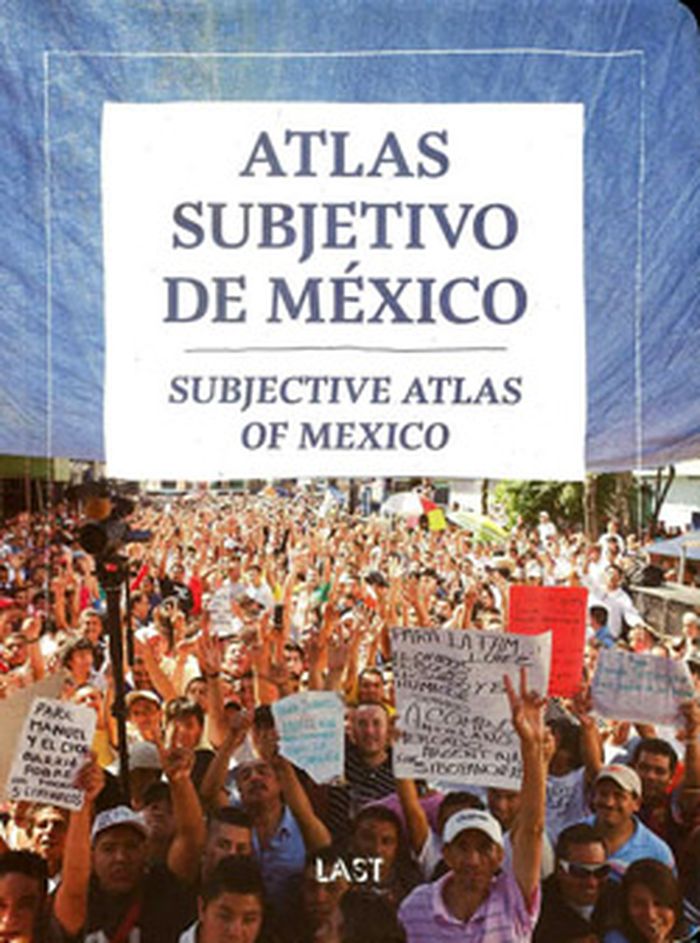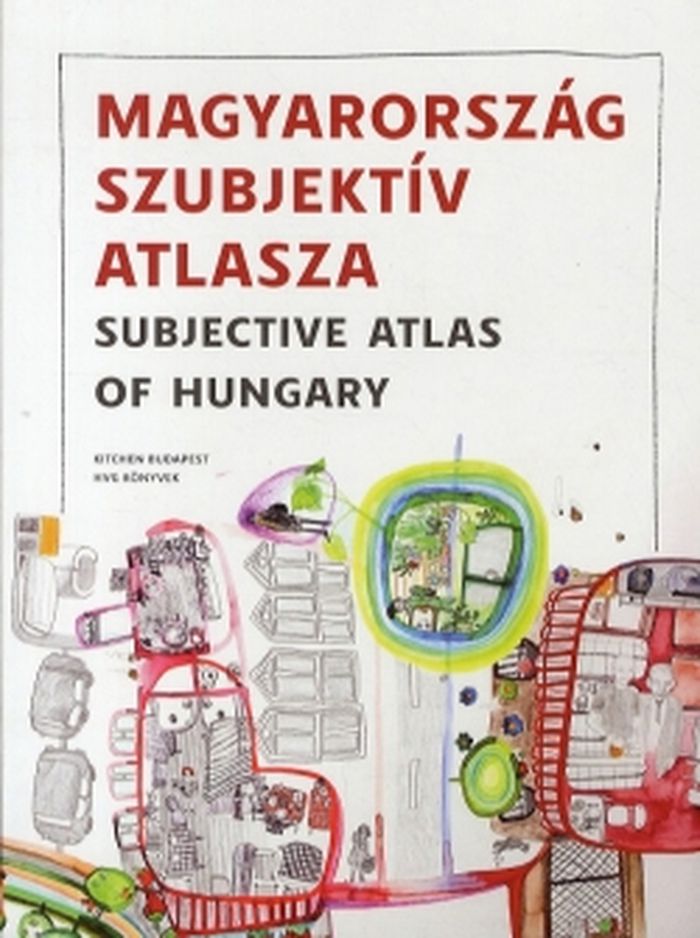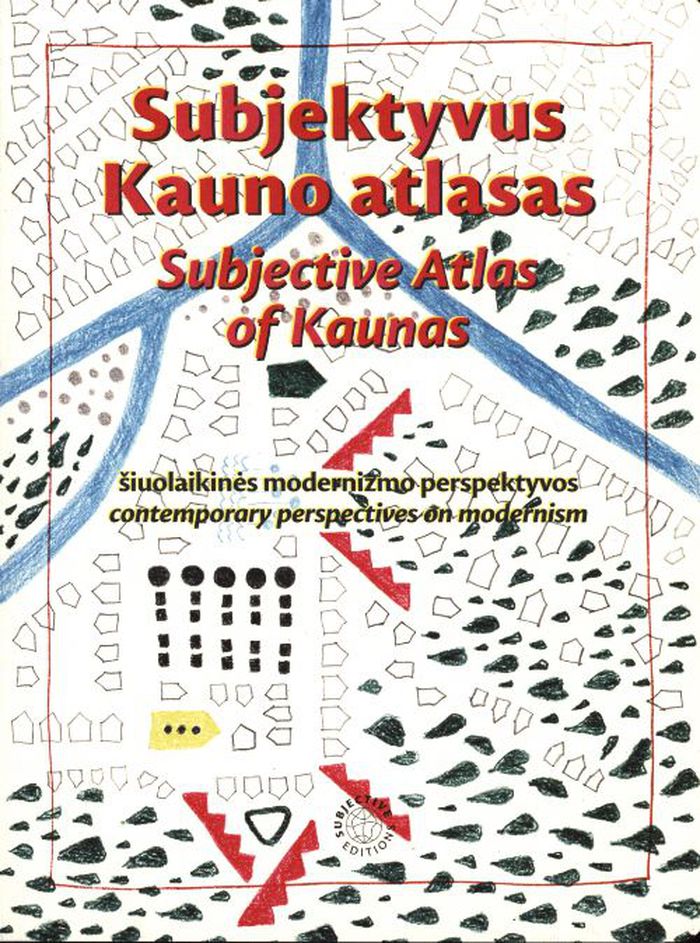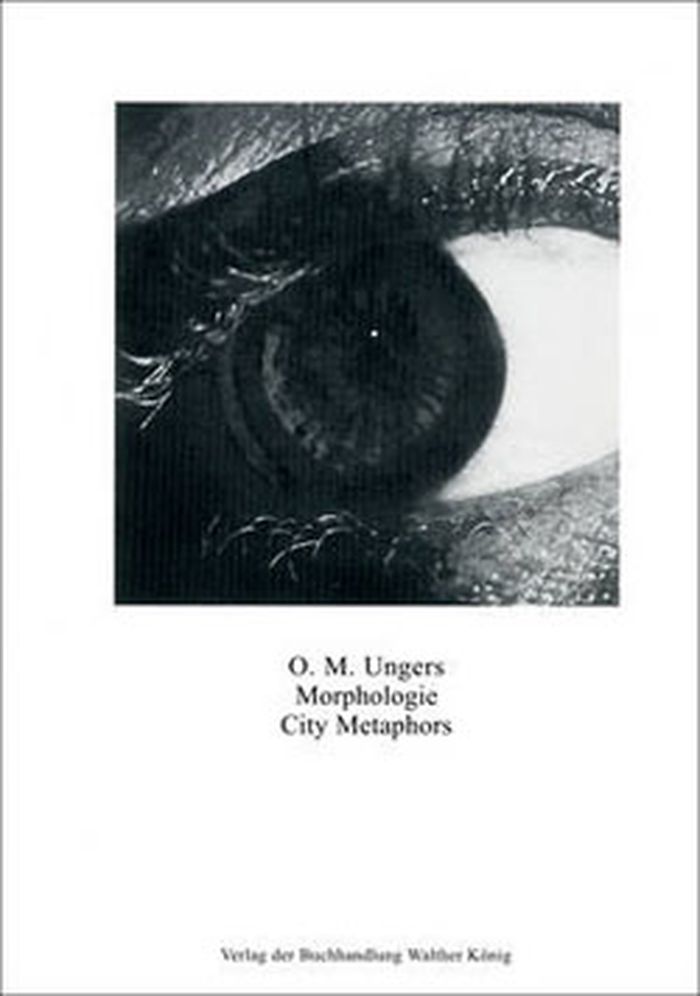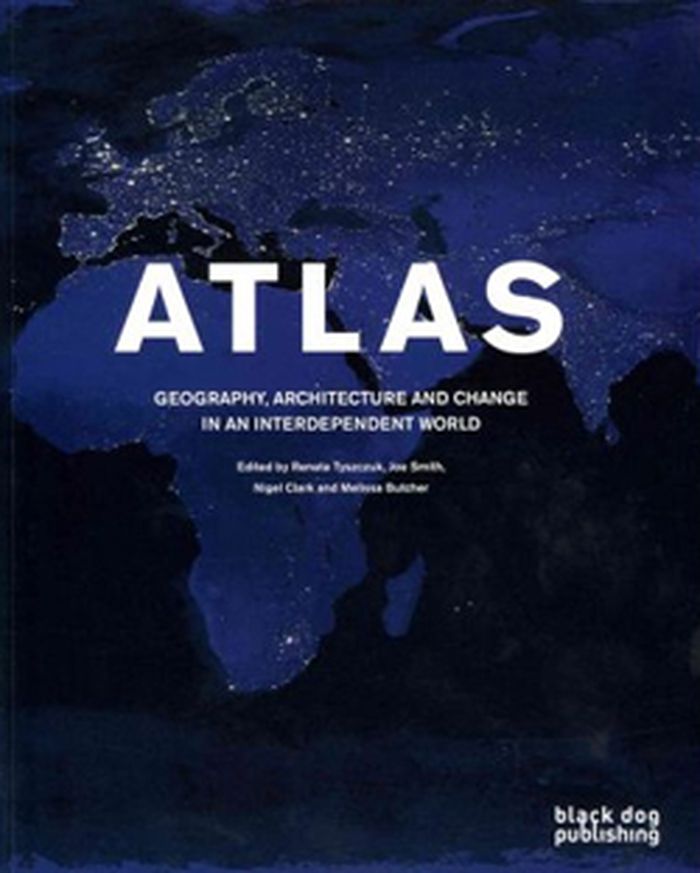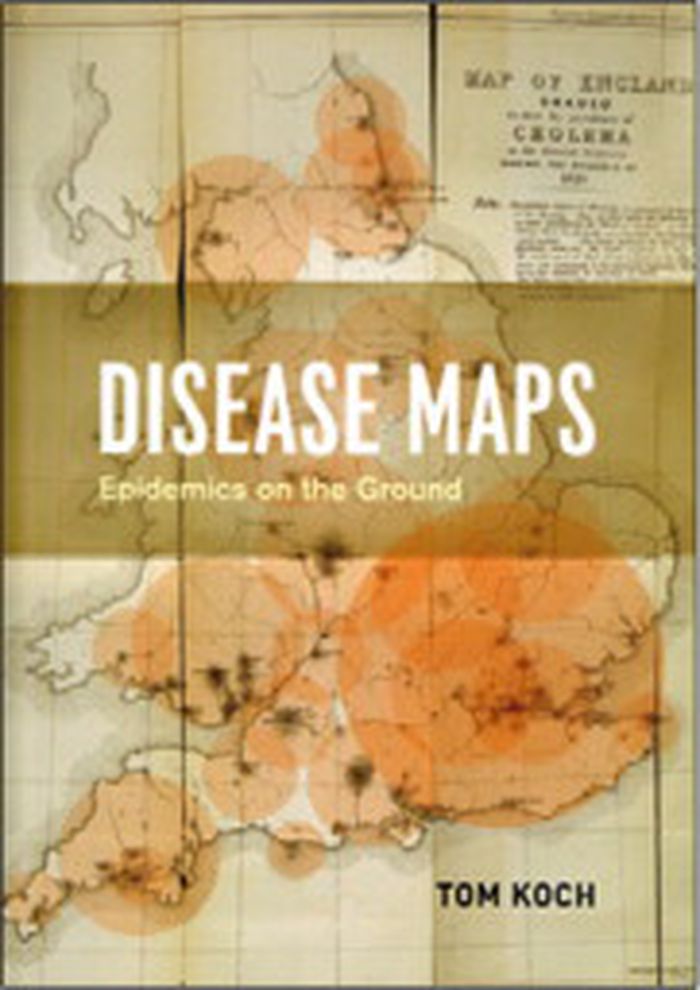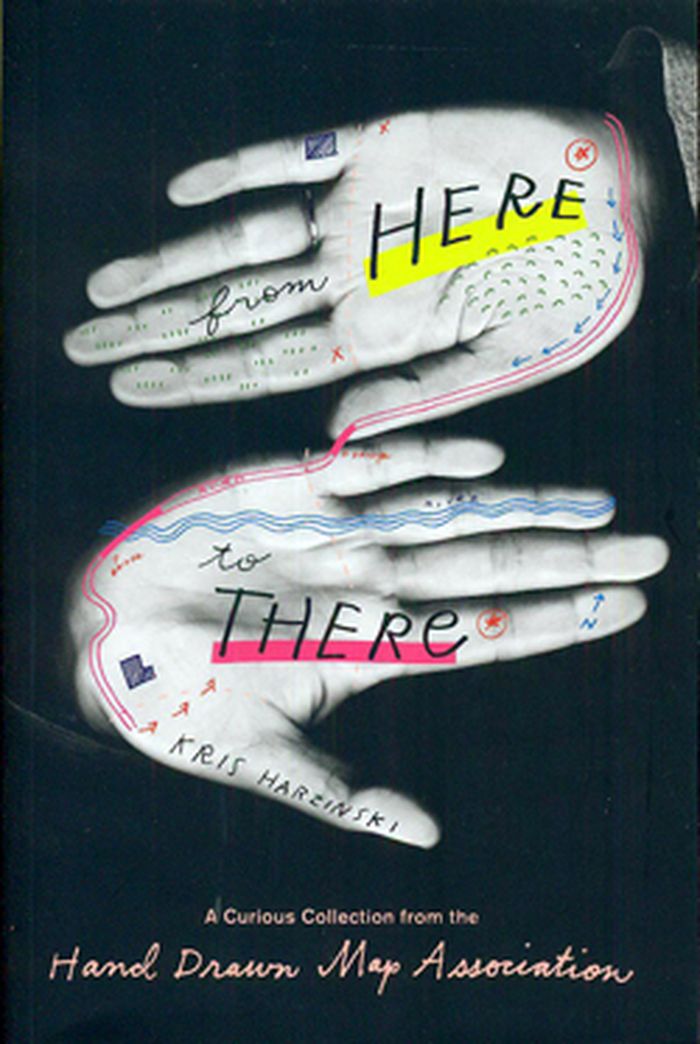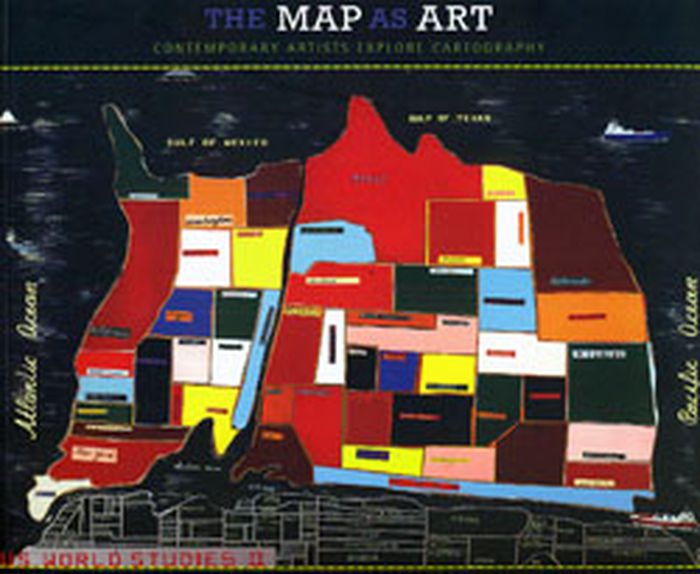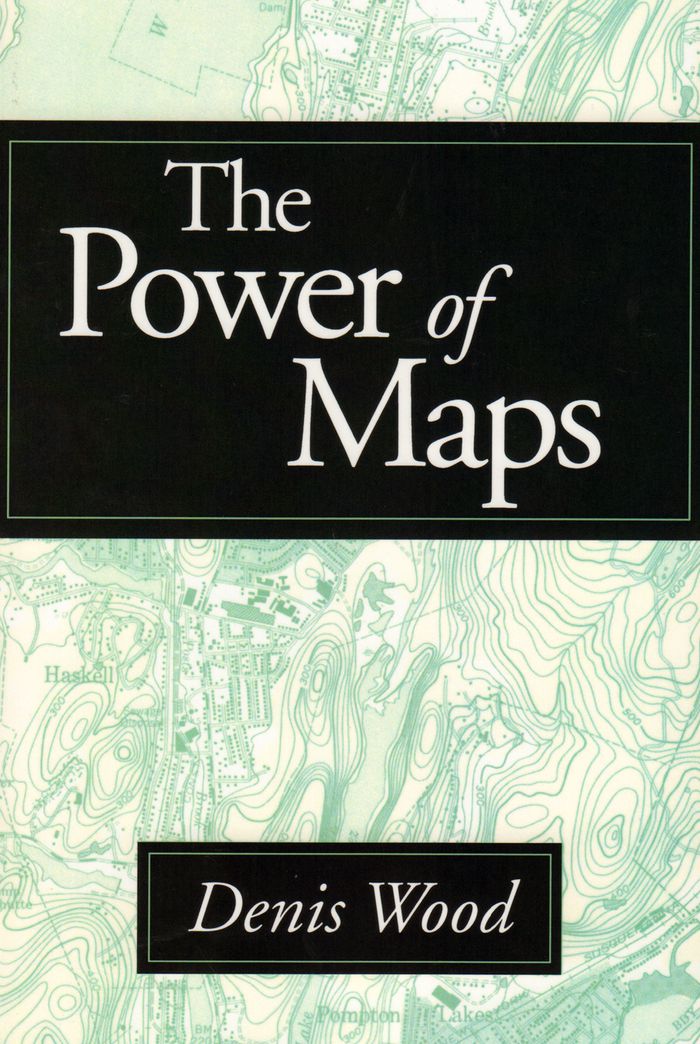$52.00
(disponible sur commande)
Résumé:
''This Is Not an Atlas'' gathers more than forty counter-cartographies from all over the world. This collection shows how maps are created and transformed as a part of political struggle, for critical research, or in art and education; from indigenous territories in the Amazon to the anti-eviction movement in San Francisco; from defending commons in Mexico to mapping(...)
septembre 2019
This is not an atlas: a global collection of counter-cartographies
Actions:
Prix:
$52.00
(disponible sur commande)
Résumé:
''This Is Not an Atlas'' gathers more than forty counter-cartographies from all over the world. This collection shows how maps are created and transformed as a part of political struggle, for critical research, or in art and education; from indigenous territories in the Amazon to the anti-eviction movement in San Francisco; from defending commons in Mexico to mapping refugee camps with balloons in Lebanon; from slums in Nairobi to squats in Berlin; and from supporting communities in the Philippines to reporting sexual harassment in Cairo. ''This Is Not an Atlas'' seeks to inspire, to document the underrepresented, and to be a useful companion when becoming a counter-cartographer yourself.
$48.95
(disponible sur commande)
Résumé:
Carried out by designers Moniek Driesse and Annelys de Vet, along with Analía Solomonoff, the Subjective Atlas of Mexico is part of a series of previous subjective atlases where a varied group of artists, designers and photographers who choose personal topics as a starting point to map their cultural identity. Each were asked: what makes a Mexican? what are our likenesses(...)
juin 2012
Atlas subjectivo de México / subjective atlas of Mexico
Actions:
Prix:
$48.95
(disponible sur commande)
Résumé:
Carried out by designers Moniek Driesse and Annelys de Vet, along with Analía Solomonoff, the Subjective Atlas of Mexico is part of a series of previous subjective atlases where a varied group of artists, designers and photographers who choose personal topics as a starting point to map their cultural identity. Each were asked: what makes a Mexican? what are our likenesses and what differences do we share? Through its pages the scope of Mexico as a country limited by its borders and its latitudes suddenly vanishes and everyday practices take on new meaning. We can find Mexico reflected in the world, and the world reflected in Mexico. A DVD is included.
Subjective atlas of Hungary
$36.95
(disponible sur commande)
Résumé:
Is it possible to draw a portrait of contemporary Hungary with only one pencil, held by many? Could we map this country at all with its controversial optimism and pessimism, proud and poetry in one single book? Fifty young visual authors were invited by new media lab Kitchen and Dutch designer Annelys de Vet to put their homeland in perspective. Together they shed light(...)
Subjective atlas of Hungary
Actions:
Prix:
$36.95
(disponible sur commande)
Résumé:
Is it possible to draw a portrait of contemporary Hungary with only one pencil, held by many? Could we map this country at all with its controversial optimism and pessimism, proud and poetry in one single book? Fifty young visual authors were invited by new media lab Kitchen and Dutch designer Annelys de Vet to put their homeland in perspective. Together they shed light on the Hungarian spirit, today, from the most characteristic vernacular buildings to waterside houses and recycled fences, from wine spritzer and salty sticks to vegetable gardens and sold-out products.
Subjective atlas of Kaunas
$48.00
(disponible sur commande)
Résumé:
Between 1919 and 1940, Kaunas served as Lithuania’s temporary capital, triggering a massive boom in construction that greatly increased its urban area. For this instalment of the Subjective Atlas series, a group of almost 40 creative residents mapped the contemporary identity of Kaunas through their personal interests, experiences, and domesticity, visualising the(...)
Subjective atlas of Kaunas
Actions:
Prix:
$48.00
(disponible sur commande)
Résumé:
Between 1919 and 1940, Kaunas served as Lithuania’s temporary capital, triggering a massive boom in construction that greatly increased its urban area. For this instalment of the Subjective Atlas series, a group of almost 40 creative residents mapped the contemporary identity of Kaunas through their personal interests, experiences, and domesticity, visualising the heritage and history of Lithuania’s second-largest city. The book highlights a surprising collection of urban, natural, and everyday spaces and artefacts, inviting readers to reflect on how this material and immaterial modernist heritage is perceived or observed, appreciated or disliked, ignored or associated with.
Morphologie: city metaphors
$39.95
(disponible en magasin)
Résumé:
First published in 1982, German architect Oswald Mathias Ungers' ''City metaphors'' juxtaposes more than 100 various city maps throughout history with images of flora and fauna and other images from science and nature. Ungers assigns each a title- a single descriptive word printed in both English and German. In Ungers' vision, the divisions of Venice are transformed into(...)
Morphologie: city metaphors
Actions:
Prix:
$39.95
(disponible en magasin)
Résumé:
First published in 1982, German architect Oswald Mathias Ungers' ''City metaphors'' juxtaposes more than 100 various city maps throughout history with images of flora and fauna and other images from science and nature. Ungers assigns each a title- a single descriptive word printed in both English and German. In Ungers' vision, the divisions of Venice are transformed into a handshake and the 1809 plan of St Gallen becomes a womb. Ungers writes in his foreword, “Without a comprehensive vision reality will appear as a mass of unrelated phenomenon and meaningless facts, in other words, totally chaotic. In such a world it would be like living in a vacuum; everything would be of equal importance; nothing could attract our attention; and there would be no possibility to utilize the mind.” A classic of creative cartography and visual thinking, ''City metaphors'' is also an experiment in conscious vision-building.
$33.95
(disponible sur commande)
Résumé:
Atlas: Geography, Architecture and Change in an Interdependent World helps readers find their way through the practical and ethical challenges presented by globalisation and global environmental change. This publication combines recent thinking on human geography and architecture on global environmental change issues, setting out to develop a reinterpretation of(...)
février 2012
Atlas: geography, architecture and change in an independent world
Actions:
Prix:
$33.95
(disponible sur commande)
Résumé:
Atlas: Geography, Architecture and Change in an Interdependent World helps readers find their way through the practical and ethical challenges presented by globalisation and global environmental change. This publication combines recent thinking on human geography and architecture on global environmental change issues, setting out to develop a reinterpretation of cartography and a reframing of sustainability. The aim is to find a re-drawing of the earth and the making of new maps. With a focus on the growth and remaking of cities it offers an innovative mix of essays and shorter texts, original artworks and distinctive re-mappings. The Atlas arises out of a collaboration between scholars and practitioners from architecture and human geography.
$52.95
(disponible sur commande)
Résumé:
In the seventeenth century, a map of the plague suggested a radical idea—that the disease was carried and spread by humans. In the nineteenth century, maps of cholera cases were used to prove its waterborne nature. More recently, maps charting the swine flu pandemic caused worldwide panic and sent shockwaves through the medical community. In Disease Maps, Tom Koch(...)
Disease maps: epidemics on the ground
Actions:
Prix:
$52.95
(disponible sur commande)
Résumé:
In the seventeenth century, a map of the plague suggested a radical idea—that the disease was carried and spread by humans. In the nineteenth century, maps of cholera cases were used to prove its waterborne nature. More recently, maps charting the swine flu pandemic caused worldwide panic and sent shockwaves through the medical community. In Disease Maps, Tom Koch contends that to understand epidemics and their history we need to think about maps of varying scale, from the individual body to shared symptoms evidenced across cities, nations, and the world. Disease Maps begins with a brief review of epidemic mapping today and a detailed example of its power. Koch then traces the early history of medical cartography, including pandemics such as European plague and yellow fever, and the advancements in anatomy, printing, and world atlases that paved the way for their mapping. Moving on to the scourge of the nineteenth century—cholera—Koch considers the many choleras argued into existence by the maps of the day, including a new perspective on John Snow’s science and legacy. Finally, Koch addresses contemporary outbreaks such as AIDS, cancer, and H1N1, and reaches into the future, toward the coming epidemics.
$21.00
(disponible sur commande)
Résumé:
This book celebrates the ephemeral documents of hand drawn maps -usually forgotten or tossed aside after having served their purpose- giving them their due as artifacts representing stories from people's lives around the world.
From here to there: a curious collection from the hand drawn map association
Actions:
Prix:
$21.00
(disponible sur commande)
Résumé:
This book celebrates the ephemeral documents of hand drawn maps -usually forgotten or tossed aside after having served their purpose- giving them their due as artifacts representing stories from people's lives around the world.
$34.95
(disponible sur commande)
Résumé:
This publication presents 360 colorful, map-related artistic visions by artists for whom maps are the inspiration for creating art. Using paint, salt, souvenir tea towels, or their own bodies, it explore a world free of geographical constraints.
The map as art: contemporary artist explore cartography
Actions:
Prix:
$34.95
(disponible sur commande)
Résumé:
This publication presents 360 colorful, map-related artistic visions by artists for whom maps are the inspiration for creating art. Using paint, salt, souvenir tea towels, or their own bodies, it explore a world free of geographical constraints.
The power of maps
$47.95
(disponible sur commande)
Résumé:
This volume ventures into terrain where even the most sophisticated map fails to lead--through the mapmaker's bias. Denis Wood shows how maps are not impartial reference objects, but rather instruments of communication, persuasion, and power. Like paintings, they express a point of view. By connecting us to a reality that could not exist in the absence of maps--a world of(...)
The power of maps
Actions:
Prix:
$47.95
(disponible sur commande)
Résumé:
This volume ventures into terrain where even the most sophisticated map fails to lead--through the mapmaker's bias. Denis Wood shows how maps are not impartial reference objects, but rather instruments of communication, persuasion, and power. Like paintings, they express a point of view. By connecting us to a reality that could not exist in the absence of maps--a world of property lines and voting rights, taxation districts and enterprise zones--they embody and project the interests of their creators. Sampling the scope of maps available today, illustrations include Peter Gould's AIDS map, Tom Van Sant's map of the earth, U.S. Geological Survey maps, and a child's drawing of the world.
